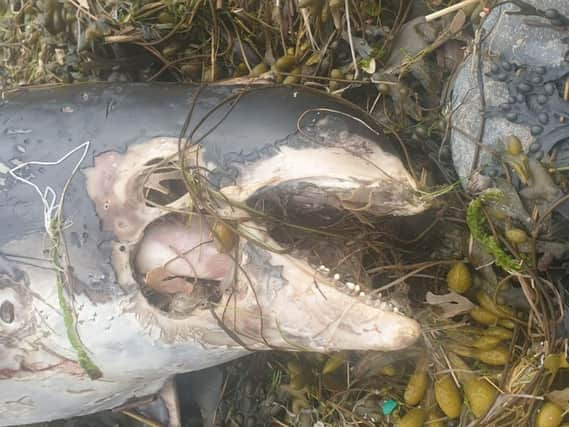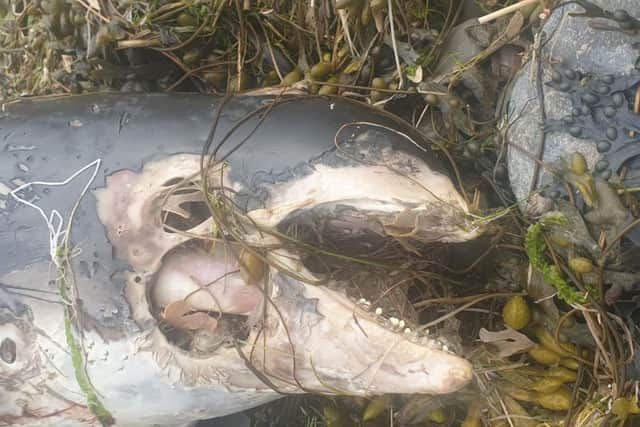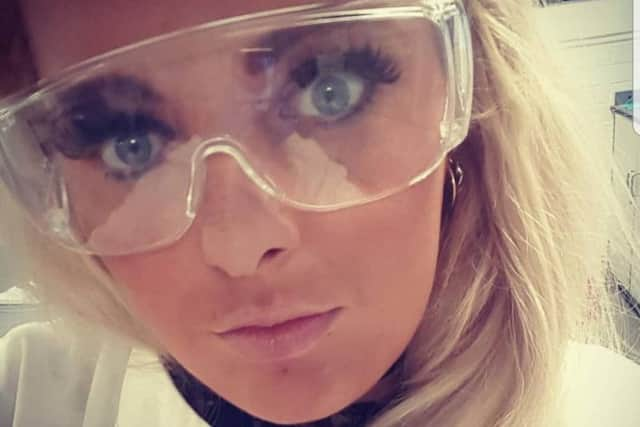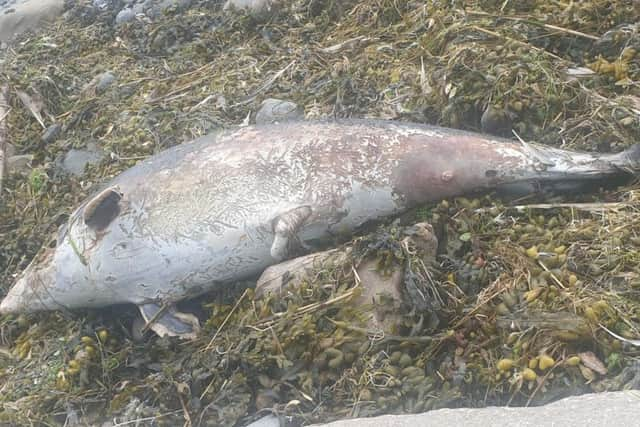A marine biology student found this young porpoise tragically washed up on a Blackpool beach


The creature, which is closely related to dolphins, was found by Katy Hartley on Friday, July 5.
Katy, 25, of Haddon Drive, is about to enter her second year of studying Marine Biology at Blackpool and The Fylde College.


She was walking along Queen's Promenade at around 5pm on Friday, when she made the tragic discovery.
"You could smell it before you could see it," she says, "looking at it, it could have died a few days, or maybe two weeks ago.
"I think it must have died in the sea and then washed ashore."
Katy's interest in sea animals made it even more tragic.


"It's always sad to find beached animals," she says, "it's sad to find them alive as well, even though they can be brought back out to sea again."
But porpoises have been known to wash up along the Fylde coast, and Katy called the UK Cetacean Strandings Investigation Programme (CSIP) for help.
"Marine mammals like dolphins do carry diseases so they can sometimes be a hazard to humans.
"I made the phone call but did not get a reply."


When she returned the next day, the carcass was still there.
The porpoise, which appears to have been young, was missing its dorsal fin.
"It have been chewed at by other marine creatures," says Katy, "and could have got the scars and scratches from the rudders of boats as well."
Exactly what caused the death remains a mystery, but Katy feels compelled to inform the public about marine welfare.
"I just want there to be more awareness really," says Katy, "we don't always realise the extent of the damage caused by humans."